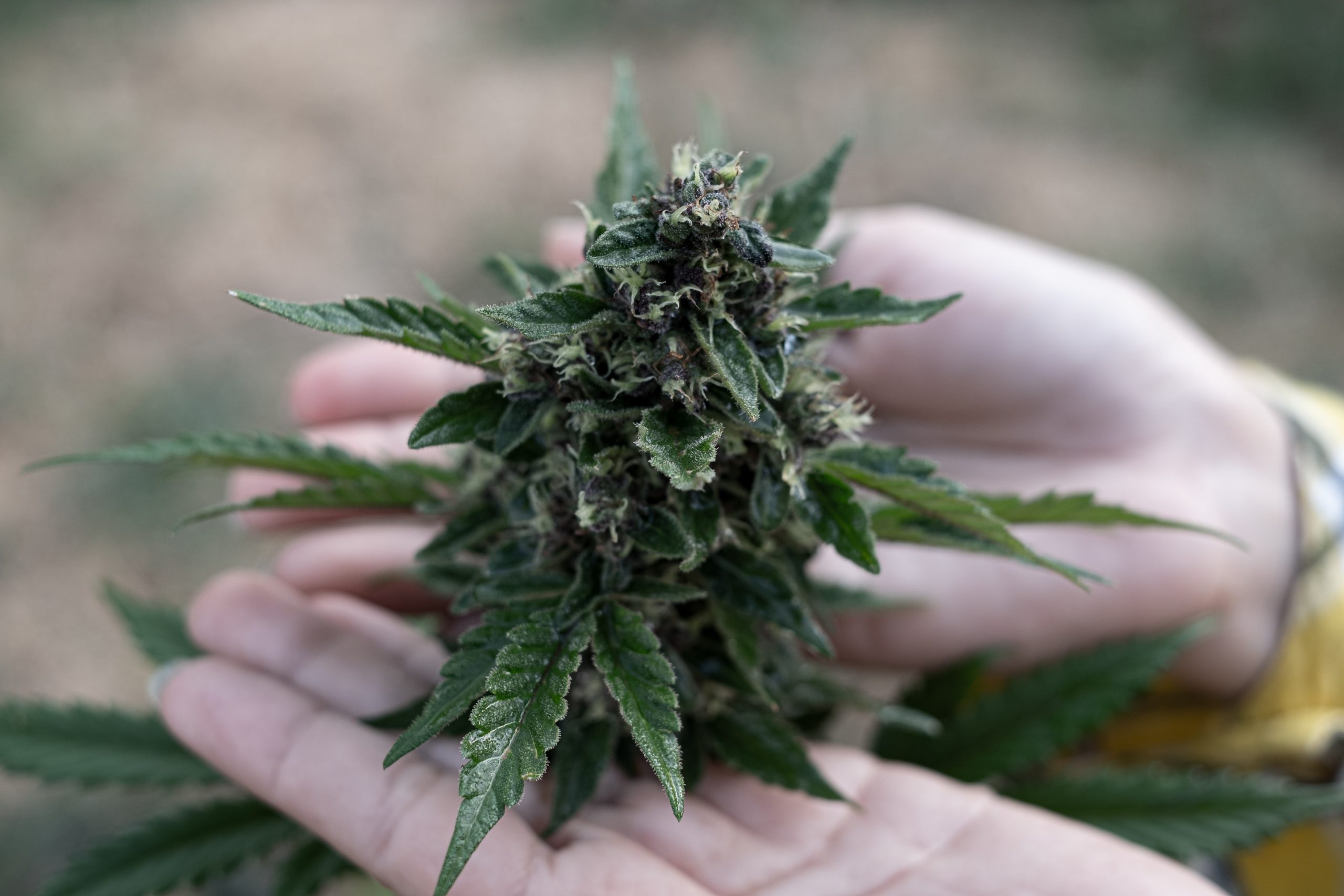Legalization And Regulations
States to Watch for Cannabis Legalization in 2025

As the cannabis industry continues to expand across the U.S., the map of legalization is changing rapidly. While 24 states have already embraced adult-use cannabis, and 39 permit medical use, several others are still navigating their path. In 2025, a dozen states stand at the brink of transformation—some likely to move forward with reform, others still entangled in political debate. Here’s a breakdown of where each state stands.
Likely to Legalize Cannabis in 2025
1. Pennsylvania
With surrounding states already reaping the tax benefits of adult-use cannabis, Pennsylvania is under pressure to catch up. Governor Josh Shapiro has made legalization a budget priority and wants to expunge past cannabis convictions. Bipartisan bills are already circulating, and while the legislature remains divided, mounting public and political support could tip the balance.
2. Wisconsin
Governor Tony Evers is pushing for adult-use cannabis, but Republicans in the legislature are divided. A key debate centers around whether dispensaries should be state-run. Despite internal GOP squabbles, support is rising, and recent election shifts narrowed the conservative majority—potentially opening the door for medical reform this year.
Maybe on the Move
3. New Hampshire
Despite bipartisan support in both chambers, Governor Kelly Ayotte has expressed strong opposition to adult-use legalization. However, the House has already passed one bill and is reviewing others, showing the issue is far from dead.
4. South Carolina
State Senator Tom Davis continues to champion a conservative, pharmacist-led medical cannabis bill. While it passed the Senate previously, its fate in the House remains uncertain, though public support is growing.
States to Watch Closely
5. Hawaii
The Aloha State’s adult-use hopes hinge on legislative compromise. A House bill stalled, but the Senate is still pushing forward. Advocates are optimistic, though hesitant due to previous failed attempts and lukewarm House reception.
6. Kansas
Despite strong public support—73% of Kansans back medical cannabis—Senate leadership continues to block reform. Governor Laura Kelly has urged action, but entrenched opposition in key committees could keep Kansas in limboSample News Articles.
7. North Carolina
The Senate supports medical legalization, but former House Speaker Tim Moore’s reluctance kept bills off the floor. With new leadership, there’s a narrow window for progress, but advocates remain cautious.
8. Texas
Multiple bills have been introduced this session to improve its restrictive Compassionate Use Program. With overwhelming support for medical cannabis (79%) and growing backing for adult-use (62%), Texas could be poised for modest progress—if legislators cooperate.
9. Virginia
Adult-use is legal in principle but lacks a regulated retail market. Recent bills to establish a commercial system passed both chambers but were vetoed by Governor Glenn Youngkin. Lawmakers may try again, but without executive support, it’s an uphill battle.
Wild Cards
10. Indiana
Despite bipartisan proposals and 87% support for medical cannabis, GOP leaders remain resistant. Speaker Todd Huston and Senate President Rodric Bray have dismissed legalization as a priority, though momentum continues to build among lawmakers.
11. Iowa
Iowa’s ultra-restrictive medical program is under scrutiny, and proposals to expand patient access and allow flower vaporization are in play. With 71% of voters backing medical cannabis, even small reforms could mark major progress.
12. Tennessee
Dual efforts are underway to legalize both medical and adult-use cannabis. While full legalization is unlikely under current leadership, a tightly regulated medical market stands a better chance of passing by session’s end.
Final Thoughts
The cannabis landscape in 2025 is primed for disruption, with voter support surging and policymakers feeling the pressure to evolve. Whether through cautious medical expansions or full-scale adult-use markets, these 12 states could shape the next wave of reform.

Legalization And Regulations
Florida’s Amendment 3 Fails: Recreational Marijuana Legalization Rejected Despite Trump’s Support

In a closely watched vote, Florida voters rejected Amendment 3, a constitutional amendment that would have legalized recreational marijuana in the state. Despite public endorsements from major political figures, including former President Donald Trump and the Florida Democratic Party, the initiative fell short of the 60% supermajority required for passage, according to projections from NBC News.
This outcome means that Florida’s cannabis laws remain unchanged, preserving the status quo in which marijuana is permitted only for medical use under a physician’s recommendation. The state’s medical program, expanded by voters in 2016, will continue to serve as Florida’s sole legal cannabis framework.
Political Crosscurrents: Trump vs. DeSantis
The fate of Amendment 3 became a flashpoint in broader national political narratives, underscoring tensions between Trump and Florida Governor Ron DeSantis, both influential voices in Republican politics.
- Trump, a Florida resident, publicly announced in September 2024 that he would vote “YES” on Amendment 3, calling for “smart regulations” but expressing support for the measure as a reflection of evolving public opinion.
- DeSantis, on the other hand, emerged as a vocal opponent. He repeatedly criticized the initiative in press appearances, warning of a rise in public nuisance and unwanted cultural changes. In a May 2024 Fox News interview, he stated: “The state would smell like it. We don’t need that in Florida.”
This division created a rare Republican rift over cannabis policy, with DeSantis appealing to more traditional conservative voters, while Trump leaned into his populist base and the growing national acceptance of cannabis reform.
Why Amendment 3 Failed
To pass a constitutional amendment in Florida, ballot initiatives must secure 60% of the vote—a high bar that has derailed other major reform efforts, including abortion rights and minimum wage increases in the past.
While support for cannabis legalization continues to grow nationally, Florida’s attempt was stymied by several factors:
- DeSantis’ aggressive opposition, including strong messaging around public safety and community values.
- The lack of robust bipartisan campaigning for the measure outside of Trump’s late-stage endorsement.
- Uncertainty among moderate voters about the implications of full-scale legalization, especially with regard to retail storefronts and public use.
Florida’s Cannabis Future
For now, adult-use cannabis remains illegal in the Sunshine State. The result is a disappointment for industry stakeholders and advocates who had hoped Florida would become the next major market to join the ranks of 24 states that have legalized recreational use.
Despite the setback:
- Florida still boasts one of the largest medical cannabis markets in the U.S., with more than 800,000 registered patients.
- Advocates may resubmit a revised ballot initiative for a future election cycle, potentially in 2026, when voter turnout patterns could differ.
- Trump’s public backing of legalization could influence future GOP-led cannabis reform, particularly at the federal level, where bipartisan bills like the STATES 2.0 Act are gaining traction.
What’s Next?
Florida’s rejection of Amendment 3 underscores the complexity of cannabis reform in states with high constitutional thresholds and politically divided leadership. While the national momentum continues, the battle in Florida shows that winning at the ballot box still requires coalition-building, early campaigning, and aligned messaging.
As the 2025 legislative landscape unfolds, Florida’s cannabis advocates are expected to regroup, analyze voter data, and prepare for the next round of reform—possibly with Trump’s support still in their corner.
Legalization And Regulations
Bipartisan Lawmakers Introduce Federal Cannabis Reform Bill Aligned With Trump’s States’ Rights Approach

A bipartisan group of congressional lawmakers has reintroduced the Strengthening the Tenth Amendment Through Entrusting States (STATES) 2.0 Act, a sweeping cannabis reform bill designed to end federal marijuana prohibition in jurisdictions where cannabis is legal. Sponsored by Reps. Dave Joyce (R-OH), Max Miller (R-OH), and Dina Titus (D-NV), the legislation would formally respect state-level cannabis policies while establishing a minimal federal regulatory framework for oversight.
The bill’s introduction arrives at a pivotal moment for federal cannabis policy. With support from figures like President Donald Trump, who has endorsed a states’ rights approach to marijuana regulation and voiced support for legalization initiatives during his campaign, the STATES 2.0 Act seeks to codify that philosophy into law.
What the STATES 2.0 Act Would Do
1. End Federal Interference in Legal States
The bill would amend the Controlled Substances Act (CSA) to prevent federal prosecution of individuals and businesses acting in compliance with state or tribal cannabis laws. It would also protect interstate cannabis commerce between legal jurisdictions, an issue becoming increasingly relevant as more states move to establish licensed markets.
2. Exempt Legal Businesses from IRS 280E
A major win for cannabis operators, the STATES 2.0 Act would exempt state-legal cannabis businesses from Section 280E of the Internal Revenue Code, which currently prevents them from deducting ordinary business expenses.
3. Establish a Basic Federal Oversight Framework
Under the bill, the Alcohol and Tobacco Tax and Trade Bureau (TTB) would oversee cannabis commerce across state lines, while the FDA would retain authority over cannabis products marketed as drugs, supplements, or food items. Key federal agencies would be required to finalize rules within 180 days of enactment.
4. Address Public Health and Safety
The bill includes several safety guardrails:
- Restrictions on marketing cannabis products with alcohol or tobacco.
- Prohibitions on employing minors in cannabis operations.
- Mandated contaminant testing and youth prevention strategies.
It also calls on the Government Accountability Office (GAO) to study the effects of legalization on traffic safety and provide a report to Congress.
Why This Matters
Cannabis reform advocates have long called for legislation that harmonizes federal policy with state legalization. The STATES 2.0 Act represents a significant step in that direction. With 24 states legalizing adult-use cannabis and 39 allowing medical use, the bill would offer legal clarity, tax relief, and a foundation for interstate commerce without mandating nationwide legalization.
This approach echoes President Trump’s stated position on cannabis: allow states to determine their own policies while limiting federal interference. During his campaign, Trump supported rescheduling cannabis and expressed approval of legalization initiatives in Florida, although no federal action has been taken yet under his second term.
Bipartisan Support and Industry Endorsements
This iteration of the STATES Act retains the core provisions from earlier versions introduced in past sessions. It’s backed by a broad coalition of advocacy and industry organizations, including:
- Coalition for Cannabis Policy, Education, and Regulation (CPEAR)
- R Street Institute
- Americans for Prosperity (AFP)
- U.S. Cannabis Roundtable (USCR)
- Reason Foundation
These organizations argue that the bill provides necessary clarity for businesses, law enforcement, and consumers while respecting state sovereignty.
Limitations and Challenges
Despite bipartisan support, the White House has signaled no immediate plans to prioritize cannabis policy in 2025. This includes rescheduling, banking reform, and other issues long championed by the industry.
Additionally, although the STATES 2.0 Act addresses several key industry concerns, it does not create a national legalization framework, nor does it mandate a federal excise tax. It instead recommends that any federal tax be modest and not layered on top of already-high state taxes to avoid financial burdens for legal businesses.
The legislation also explicitly maintains federal authority over violations of state law, ensuring that rogue actors or those skirting local regulations would still be prosecutable under federal law.
What Comes Next?
The STATES 2.0 Act’s path through Congress remains uncertain. While the bill aligns with the administration’s articulated stance and enjoys support across the aisle, passage will depend on committee prioritization, party leadership, and broader congressional appetite for cannabis reform amidst competing legislative priorities.
Still, the measure represents the most comprehensive and politically viable effort to date to reconcile federal and state cannabis laws without pushing for full national legalization. As lawmakers revisit cannabis regulation in 2025, the STATES 2.0 Act stands as a key bellwether for the direction of federal cannabis policy.
Legalization And Regulations
Rhode Island Finalizes Cannabis Regulations Ahead of Full Market Transition

Rhode Island is entering a pivotal phase in its cannabis market evolution. With the approval of final regulations by the state’s Cannabis Control Commission (CCC), the state is set to formally transfer full authority over both the medical and adult-use cannabis sectors to a new centralized regulatory body. This transition, taking effect on May 1, 2025, marks a major milestone in the state’s implementation of the Rhode Island Cannabis Act.
The CCC’s final vote on April 11 signals the end of a two-year period of preparation and public input, laying the groundwork for a more unified and accountable governance structure for the state’s cannabis industry.
Centralized Oversight Replaces Fragmented Structures
One of the most significant changes introduced by the new regulations is the full consolidation of cannabis oversight under the CCC. Previously, the state’s medical cannabis sector had been managed by the Office of Cannabis Regulation (OCR) within the Department of Business Regulation. As of May, that office will be restructured into the Cannabis Office, a newly created entity within the CCC tasked with managing day-to-day operations.
This streamlined oversight model mirrors similar governance structures seen in other states that have transitioned to regulated dual-use cannabis markets. Centralized control is expected to improve compliance monitoring, licensing efficiency, and policy enforcement—while reducing bureaucratic overlap.
What the Final Regulations Cover
The new rules represent a comprehensive regulatory framework that spans every sector of the cannabis market, including:
- Licensing and application procedures for cultivators, manufacturers, retailers, and testing laboratories
- Operational compliance standards, covering inventory tracking, security protocols, and packaging requirements
- Product safety and testing rules, including potency limits, contaminant screening, and labeling
- Personal and medical cultivation guidelines, specifying plant limits and household usage
- Retail and public consumption policies, focused on safety, zoning, and consumer education
The regulations were crafted following a public comment period that drew nearly 400 submissions from individuals, advocacy groups, and industry stakeholders. Feedback played a key role in shaping the rules around equity, access, and safety—core pillars of Rhode Island’s approach to cannabis reform.
Focus on Social Equity and Public Health
Equity remains a central theme throughout Rhode Island’s cannabis policy. The finalized rules incorporate provisions that aim to level the playing field for those impacted by decades of prohibition. The Social Equity Assistance Program and Fund is designed to provide resources, support, and access to capital for eligible applicants, especially those from communities disproportionately affected by cannabis-related arrests.
Beyond licensing equity, the regulations emphasize consumer safety and public health protections. All cannabis products must meet stringent quality standards and pass third-party laboratory testing. Child-resistant packaging, transparent ingredient disclosures, and restrictions on marketing to minors are all core components of the new compliance framework.
Operational Implications for Rhode Island’s Market
For existing operators and new market entrants, the new regulatory landscape brings both structure and opportunity. Businesses will be required to meet the updated standards across licensing, operations, and product handling. While this may involve transitional costs and procedural adjustments, it also signals the arrival of a more stable and transparent environment for long-term investment and innovation.
Market watchers anticipate that clearer rules will also boost consumer confidence, especially among those previously hesitant to engage with legal cannabis channels. With retail access already expanding in parts of the state, the formal implementation of these rules could accelerate market normalization and growth in underserved areas.
Looking Ahead: Implementation and Adaptation
While the CCC’s final regulations provide a detailed roadmap, implementation is only beginning. As of May 1, enforcement responsibility will shift fully to the Cannabis Office, which is expected to roll out compliance checks, licensing updates, and additional education initiatives for both consumers and operators.
Continuous adaptation will be key. As Rhode Island’s cannabis landscape matures, the CCC is expected to revisit regulations regularly to ensure alignment with industry trends, emerging technologies, and evolving public health data.
Importantly, this transition occurs during a period of national cannabis policy fluidity. Federal reclassification debates and shifting enforcement priorities mean that state-level systems like Rhode Island’s must remain agile while maintaining rigorous standards.
Conclusion
Rhode Island’s approval of final cannabis regulations signals more than administrative change—it reflects a broader commitment to building a fair, secure, and scalable cannabis ecosystem. By bringing the entire market under one regulatory roof, and embedding equity and accountability into its core policies, the state positions itself as a model for thoughtful cannabis governance.
As the May 1 transition approaches, Rhode Island’s cannabis stakeholders—patients, entrepreneurs, regulators, and consumers—will be watching closely to see how the framework functions in practice. If successful, the new structure could provide a replicable blueprint for smaller states looking to balance innovation with oversight in the emerging cannabis economy.
-

 Legalization And Regulations6 months ago
Legalization And Regulations6 months agoRhode Island Finalizes Cannabis Regulations Ahead of Full Market Transition
-

 Legalization And Regulations6 months ago
Legalization And Regulations6 months agoFlorida’s Amendment 3 Fails: Recreational Marijuana Legalization Rejected Despite Trump’s Support
-

 Cannabis Product Reviews6 months ago
Cannabis Product Reviews6 months agoDr. Greenthumb’s x G Pen: A Compact Vaporizer With Big Style and Even Bigger Performance
-

 Cannabis Industry News7 months ago
Cannabis Industry News7 months agoLeadership Shakeup in NYC Sparks Questions About the Future of Urban Cannabis Programs
-

 Dispensaries5 months ago
Dispensaries5 months ago3 Dispensaries in New Mexico That Are Revolutionizing the Scene
-

 Cannabis Industry News7 months ago
Cannabis Industry News7 months agoTariffs and the Cannabis Supply Chain: How U.S. Businesses Are Adapting to Economic Headwinds
-

 Cannabis Product Reviews7 months ago
Cannabis Product Reviews7 months agoExploring the Entourage Effect: A Closer Look at The Terpene Store’s Natural Products Sample Pack
-

 Dispensaries6 months ago
Dispensaries6 months agoTop 3 Trendsetting Dispensaries in Michigan for 2025







